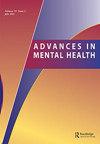The therapy capability framework and mapping process: perspectives of mental health clinical case managers
IF 1.7
Q3 PSYCHIATRY
引用次数: 1
Abstract
ABSTRACT Objective: The aim of this study was to investigate the utility of a workforce leadership initiative, the Therapy Capability Framework (TCF), designed to enhance the provision of evidence-informed psychosocial therapies by publicly funded mental health case managers. To understand the experiences and perceptions of ‘first-time users' of the TCF was conceived as an important first step to help guide service-wide implementation. Method: In 2018, a qualitative descriptive research methodology using two in-depth focus groups with frontline mental health clinicians in case management roles was adopted to explore their perceptions and experiences of the TCF and TCF Process across Metro South Addiction and Mental Health Services in Brisbane, Australia. An inductive approach to thematic analysis guided the generation of themes and subthemes. Results: Participants understood the purpose of the TCF; however, they identified several factors influencing their experience, including specific features of the framework; how it was used; and organisational, workforce, and leadership factors that restricted its potential utility and impact. Discussion: Clinicians reported the TCF as having the potential to facilitate incremental change in the existing case management model. This paper represents a phase of evaluation and continuous improvement of the TCF, which can assist publicly funded mental health leaders to augment the provision of evidence-informed psychosocial therapies.心理健康临床个案管理者的视角:治疗能力框架与绘图过程
摘要目的:本研究的目的是调查劳动力领导倡议的效用,治疗能力框架(TCF),旨在加强公共资助的精神卫生病例管理人员提供循证心理社会治疗。了解“首次使用者”的经验和看法,是协助指导全服务实施的重要第一步。方法:2018年,采用定性描述性研究方法,采用两个具有病例管理角色的一线心理健康临床医生的深度焦点小组,探讨他们对澳大利亚布里斯班Metro South成瘾和心理健康服务中TCF和TCF过程的看法和经验。主题分析的归纳方法指导了主题和副主题的生成。结果:参与者理解TCF的目的;然而,他们确定了影响他们体验的几个因素,包括框架的具体特征;它是如何使用的;组织、劳动力和领导因素限制了它的潜在效用和影响。讨论:临床医生报告TCF有可能促进现有病例管理模式的渐进式变化。本文代表了评估和持续改进TCF的一个阶段,它可以帮助公共资助的精神卫生领导者增加提供循证心理社会治疗。
本文章由计算机程序翻译,如有差异,请以英文原文为准。
求助全文
约1分钟内获得全文
求助全文

 求助内容:
求助内容: 应助结果提醒方式:
应助结果提醒方式:


